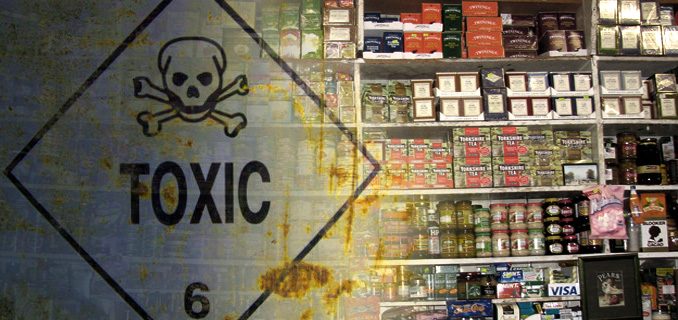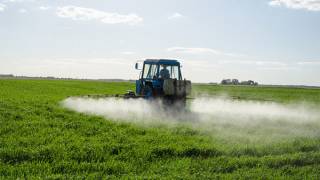The Longterm Health Impact of Toxic Food Packaging
Source: activistpost.com

There once was a guy who wrote a book about his journey out of crippling brain fog. He warned that to get out of it he and others needed to use extreme caution about what they brought into the house. With gloves, anything he purchased was unwrapped and placed into more natural vessels like glass, wood and stainless steel. Furthermore, most of those purchases were avoided in the first place.
Does that seem extreme to you?
Researchers are slowly, surely and quietly admitting the cumulative effects of handling food packaging and eating its contents over the years. What are they, and what can you do? Without having to wear a biohazard suit, of course.
Food packaging chemicals may be harmful to human health over the long term caution environmental scientists in a commentary in the Journal of Epidemiology and Community Health. Sure it’s a commentary, but if this sounds like radical alarmist scaremongering let’s remember that researchers probably knew about these materials (approved as safe) from the beginning and, perhaps, due to consumer concern, more than mere chemicals are the things finally leaking out.
Synthetic chemicals used in packaging, processing and storing foods were approved as safe in minor doses, but those previous comforting messages hold nothing now. Not only have they come back to say "we were wrong" about that cumulative amount and its true metabolism in the body, but consumers in the last few decades have upped their intake of packaged foods. Not only do we handle those materials on a daily basis, but they leach into food, beverages and the environment because they are not inert. Its’ a problem that yesteryear’s more costly but reusable packaging (wood, glass, steel etc.) didn’t seem to pose. Our crops are often watered with the waste of those products as the recent incident with Whole Foods reminded us.
So, aside from the processed and packaged food ingredients themselves, the people who eat those products are likely chronically exposed to low levels throughout their whole lives, said the authors. To be sure, little was done in the beginning for long-term testing or impact in the womb. They find that lifelong exposure to FCMs (food contact materials used in packaging, storage, processing or preparation equipment) "is a cause for concern for several reasons."
Known toxicants, such as formaldehyde (a cancer-causing substance) are legally used in these materials. Formaldehyde is widely present, in low levels, in plastic bottles used for carbonated drinks and melamine tableware.
Secondly, other chemicals known to disrupt hormone production also crop up in FCMs, including bisphenol A (BPA), tributyltin, triclosan, and phthalates. BPA gets dropped for a more dangerous BPS and product labels can boast "BPA-Free!"
The authors point out:
Whereas the science for some of these substances is being debated and policy makers struggle to satisfy the needs of stakeholders, consumers remain exposed to these chemicals daily, mostly unknowingly.
[...]
Read the full article at: activistpost.com
Tune into Red Ice Radio:
Barbara Peterson - Hour 1 - Farmwars: The Anti-GMO Battle
William Engdahl - Doomsday Food & The Business of Eugenics
Dr. Robert Verkerk - Hour 1 - EU Banning Herbs & Pushing GMOs
Jeffrey Smith - Seeds of Deception & The Danger of Genetically Engineered Foods
Robin Falkov - Health and Food Freedom, Herbs & Radiation Defense
James Corbett - Geopolitics, Eugenics & Depopulation
Michael Murphy - What in the World are They Spraying?
Catherine Austine Fitts - Swine Flu, Vaccination & The Economy
Ian Crane - Codex Alimentarius, Artificial Food Scarcity & The New World Order’s Quest for Zion in 2012
Radio 3Fourteen - Ken Rohla - Neutralizing Radiation, Chemtrails & Mind Control






















